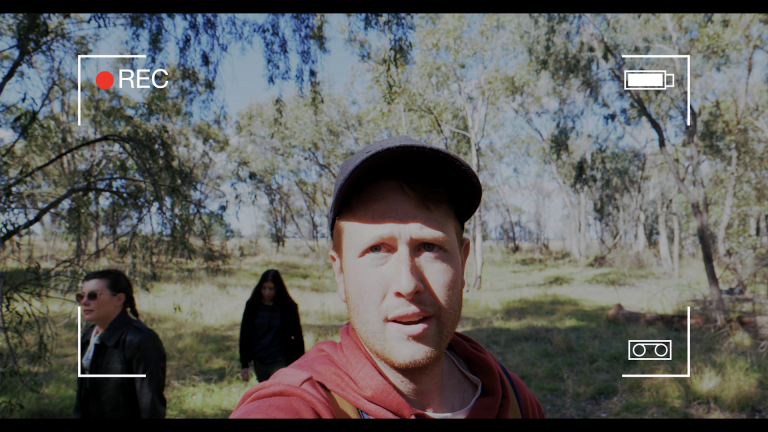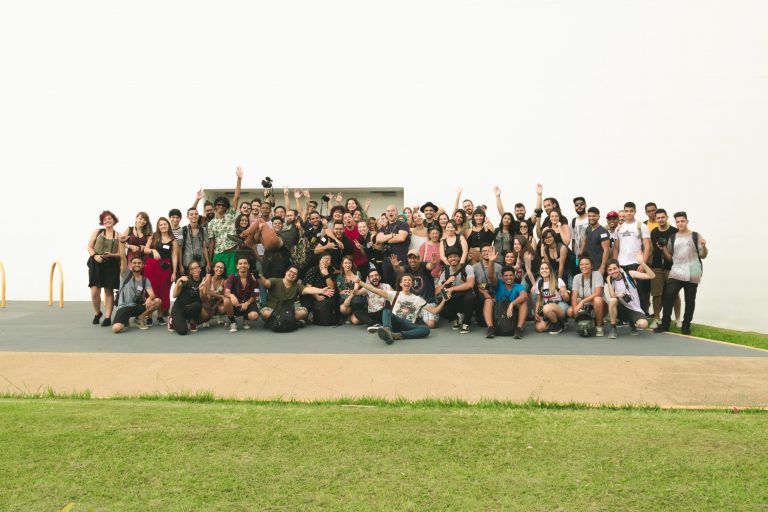Doc vs Fiction? Solo vs Team?
Hey filmmakers,
Anyone else noticed that there’s a lot of decision-making in the filmmaking process, huh? While it’s a great opportunity to flex your decisiveness muscles – we’ve got a few tips to help with some of the biggest choices you have to make.
Doc vs Fiction
1. Need a definition?
We cover the difference between documentary and narrative in Episode 2 of the Nextwave Online program – as well as examples of both. A fictional film is totally made up, like a short film, animation, or a skit, like a tik tok. A non-fiction film (documentary) will follow real people, maybe a surf, skate or dance film or an interview with a subject!
2. Why make a doco?
There’s a few reasons you might pick one format over the other, including what type of film you want to make (things like comedies and thrillers might stick to fiction) but one of the main reasons to try your hand at documentary is because there is a topic or subject you feel passionate about! Documentaries are a great way to really explore what’s happening in your life or in your community.
3. Why make a fictional film?
You might prefer fiction over fact if you’ve got a fantastical story to tell, or if you’re keen to explore themes and ideas from a narrative perspective. You can still dive into a topic you’re passionate about through storytelling – nothing is limited to doco only. You might even want to experiment beyond following a narrative!
4. Keen to mix it up?
Now we said comedies are usually fictional films, and while that might be true, you do have the option of dressing your fictional story up, as if it were real. This is called a mockumentary, and there’s so many hilarious examples – like the TV show, The Office or Aussie comedy Kenny. What other funny film or TV examples can you think of that are ‘mockumentary’?
4. What kinds of docos are there?
Just like fiction films, there are lots of different styles of documentary to choose from. You could opt for an interview style of doco, where you sit a subject down and have them talk about their life or an experience in their life, or observational, in which the filmmaker will simply film things as they are, to show the subject as it is, with little to no input from the director.
Team vs Solo
1. How can I get it all done alone?
We’ve got a whole blog dedicated to solo tricks like animation, split screen and using a tripod HERE! You could also work with a micro team of 2 or 3 people.
2. What’s the best way to work in a team?
Yet again – we’ve covered this one in a previous blog – get the dream team top tips HERE.
3. I have a really specific thing I’m good at – can I be on a filmmaking team?
Heck yes! One of the reasons the Nextwave Team loves films and film sets is that there is a place for everyone – and an important role for most skills. From music, make-up & making sets to yelling ‘quiet on set’ the loudest, from directors and actors to continuity and camera op. We promise there’s a role for YOU!
4. Can I try both?
Perhaps you’ve got one film in the works, either with your school, or a group of friends, and you’d like to submit something that’s all yours. Perhaps you’ve just left it too late and you’re looking for a project to work on solo! Making a film in a group is a great way to collaborate, but working on something that’s all your own is also really rewarding.
Don’t forget that one of the best ways to be in the running to take out top prizes is to submit multiple unique entries, and to help others with their projects. If you’ve got a specific strength, play to it! Develop your filmmaking skills through experimentation, and be rewarded with your increasing skill and ability to make creative films!



